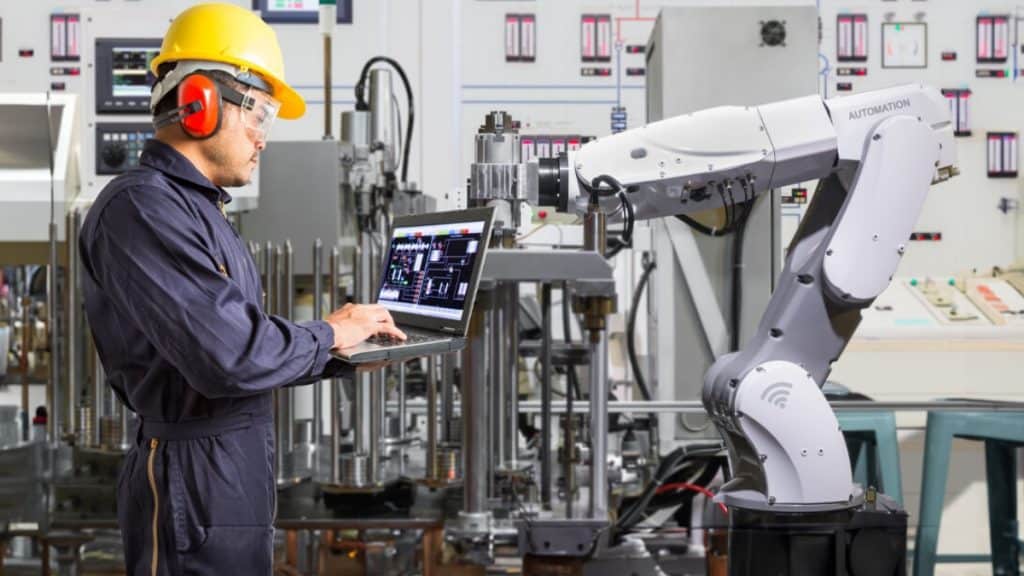In today’s fast-paced manufacturing landscape, precision and efficiency are more important than ever. Traditional quality control methods, often reliant on manual inspections, are prone to human error and inefficiency. As industries strive for perfection, automated quality control powered by artificial intelligence (AI) has emerged as a game-changer. See how AI is transforming production lines by enhancing accuracy, reducing waste, and accelerating processes — a shift that is revolutionizing how manufacturers operate.
The Rise of AI in Manufacturing
AI technology has steadily infiltrated manufacturing processes, offering innovative solutions for long-standing challenges. Automated quality control, in particular, leverages machine learning algorithms, computer vision, and real-time data analytics to identify defects and inconsistencies with incredible precision. Unlike human inspectors, AI systems work tirelessly, scanning thousands of products per minute without compromising accuracy.
According to a report by Research Gates, AI-driven quality control systems can reduce manufacturing errors by up to 50%, saving companies substantial costs and boosting overall productivity. These AI solutions not only detect flaws but also predict potential issues, allowing manufacturers to address root causes before defects escalate.
How Does Automated Quality Control Work?
At the core of automated quality control lies a combination of AI technologies such as machine learning and computer vision.
Computer Vision In Automation
High-resolution cameras capture detailed images of products at various stages of production. AI algorithms then analyze these images to spot deviations from quality standards — whether it’s a tiny crack in a component or a misalignment in packaging.
The Role of Machine Learning
AI models are trained with vast datasets of defect patterns and acceptable product criteria. Over time, these models learn to distinguish between minor variations and genuine faults, continuously improving their accuracy.
Real-Time Data Processing is Vital
AI systems instantly evaluate whether a product meets quality standards or needs to be removed from the line. This swift action minimizes downtime and prevents defective items from advancing to the next stage.
By integrating these technologies, automated quality control systems enhance efficiency, ensuring only flawless products reach consumers.
Key Benefits of AI-Powered Quality Control
Improved Accuracy and Consistency
Human inspectors can experience fatigue or oversight, especially in high-volume environments. AI, however, performs with unwavering precision 24/7. By automating inspections, manufacturers eliminate human error, achieving consistent quality across all products.
Faster Production Cycles
Manual quality checks slow down production lines, creating bottlenecks. AI systems work in real-time, instantly identifying defects without halting operations. This seamless integration boosts productivity and accelerates time-to-market.
Cost Savings
Detecting defects early prevents faulty products from progressing down the line, reducing waste and rework costs. According to PwC, AI-powered quality control can lower operational costs by 20-30%, making it a cost-effective solution for manufacturers.
Predictive Maintenance
Manufacturing AI further enhances efficiency by enabling predictive maintenance. Beyond defect detection, AI systems can identify early signs of equipment wear and tear. This proactive approach to maintenance reduces unexpected breakdowns, further streamlining operations.
Ease of Scaling
AI systems easily adapt to increased production demands, ensuring consistent oversight whether a factory produces hundreds or thousands of units per day.
Real-World Applications of AI in Quality Control
Major manufacturers worldwide have embraced AI to enhance quality control processes.
Automotive Industry
Companies like Tesla use AI-powered computer vision systems to inspect vehicle components, ensuring flawless assembly and reducing recalls.
Electronics Manufacturing
AI algorithms identify micro-defects in circuit boards — a task nearly impossible for the human eye — ensuring high-performance devices hit the market.
Pharmaceuticals
AI verifies product integrity in packaging and labeling, ensuring medication safety and compliance with regulatory standards.
These real-world examples demonstrate how AI technology is reshaping the manufacturing landscape.
Conclusion
Automated quality control, fueled by AI, is revolutionizing production accuracy across industries. By leveraging computer vision, machine learning, and real-time data processing, AI systems detect defects faster and more reliably than human inspectors. See how AI is transforming production lines by improving efficiency, reducing costs, and enhancing product quality. As AI technology continues to evolve, manufacturers who adopt these innovations will undoubtedly stay ahead of the curve.
